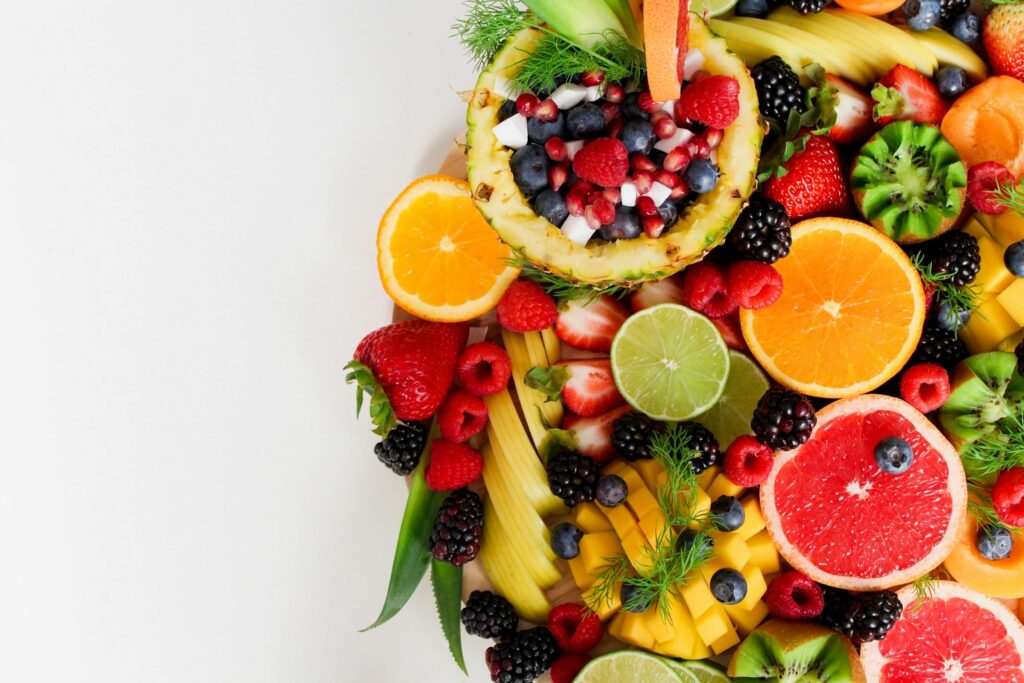

“To keep the body in good health is a duty, otherwise we shall not be able to keep our mind strong and clear.”
Its our duty and responsibility to keep our body healthy and full of energy. Our Body gets energy through the food we eat, so it is very important to eat a Balanced Diet and remain fit and healthy.
What is a Balanced Diet ?
A balanced diet contains an adequate amount of all the nutrients required by the body to grow, remain healthy and be disease-free. In addition, a healthy, balanced diet provides the necessary energy requirement, protects against vitamin, mineral, and other nutritional deficiencies, and builds up immunity.
What are The Benefits of Eating a Balanced Diet?
A balanced meal helps provide the body with all the nutrients it needs to maintain normal growth and repair functions.
Benefits of Healthy Eating for Adults
A healthy diet helps boost immunity, reduces the risk of developing Type 2 Diabetes, cardiovascular diseases, and some cancers, maintains a healthy weight, and helps recover quickly from diseases and trauma.
7 Essential Components of A Balanced Diet
Proteins, carbohydrates, fats or lipids, micronutrients such as vitamins and minerals, and water are the essential components of a well-balanced diet.
- Carbohydrates – Carbohydrates provide you with energy, which should constitute 50- 60% of your diet. Though it forms a significant diet component, you should not treat all carbs equally.Sources of healthy carbs are-
- Whole grains like Oats
- Whole wheat
- Millets like ragi, bajra, barley
- Vegetables
- Protein – Protein helps you build muscles and develops skin and hair. It should constitute 10-12% of your diet.Sources of protein are-
- Legumes and beans, soyabean
- Poultry-Chicken, Turkey
- Seafood- Fish, Crab,
- Eggs
- Lean meat- Lamb, Pork
- Nuts and Seeds
- Greek yoghurt
- Fat – It is a misconception that fats are bad for your health. It would be best if you chose healthy fats as fats help you maintain your body temperature and help absorb fat-soluble vitamins ADE&K.Sources of healthy fat are –
- Avocados
- Nuts
- Seeds
- Extra virgin Olive oil
- Fatty fish- Salmon, Sardines, Mackerel, Herring
- Minerals – Minerals help release energy from the food you take and promote the growth of organs. Some essential minerals are iron, calcium, potassium, iodine, and sodium. Sources of minerals are –
- Fish
- Meat
- Beans
- Cereals
- Nuts & Seeds
- Vitamins – Though there are 13 essential vitamins, you should take vitamins A, C, B, and D measures.Sources of vitamins are –
- Fruits
- Vegetables
- Poultry
- Seeds
- Nuts
- Fibre – Fibre helps in digestion and also helps in lowering your cholestrol levels and controlling sugar levels .Sources of fibre are –
- Oats, dahlia, Quinoa and Brown rice
- Beans
- Whole grains
- Nuts & seeds
- Water – You should take at least 8-10 glasses of water as it hydrates your body and is used in body functions.
To remain fit it is also important to eat in maintainance calories.
What are Calories?
The number of calories in a food refers to the amount of energy stored in that food. Your body uses calories from food for walking, thinking, breathing, and other important functions.
The average person needs about 2,000 Calories every day to maintain their weight, but the amount will depend on their age, sex, and physical activity level. Males tend to need more calories than females, and people who exercise need more calories than people who don’t.
So, a person has to eat a Balanced Diet according to his/her appetite and under the maintainance calories and with high nutritional value.
What are Nutritional Values ?
The nutritional value of a food describes the amount of carbohydrates, fats, proteins and energy that can be used during digestion. Not only the quantitative nutritional content of a product is important, but also the nature of the respective nutrient, the relationship between the nutrients and the daily needs of a particular person. For example, some experts evaluate the unsaturated fatty acids found in vegetable fats higher in quality than the saturated fatty acids contained in animal fats. Therefore, it is important to know what proportion of the fats in a product are unsaturated or saturated fatty acids. It is also important to note how much of the nutrients a person needs. This value depends on the gender or age of the person concerned.
Some Foods having high Nutritional values:-
- Fish. …
- Broccoli or any of the cruciferous vegetables. …
- Beets. …
- Spinach and other leafy green vegetables. …
- Kale. …
- Peanut butter. …
- Almonds. …
- Mangos.
FHL provides diet plan having right amount of protein, carbohydrates, Vitamins, Fibre and Minerals at a price affordable to every needy individual which is designed under the guidance of expert Dieticians.
